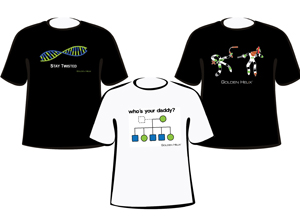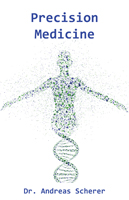Our webcast yesterday featured two clinical workflows and and the ease in moving from an unfiltered variant file to a clinical report containing the variants of interest using VarSeq and VSReports. There were several great questions and I wanted to pass on a few of particular interest. Question: Are annotation sources included in VarSeq for free?
Bipartisan Budget Act of 2015 Passed! We at Golden Helix, and I are certain that many in our community, are more than pleased to hear that President Obama has signed the “Bipartisan Budget Act of 2015“. Most importantly, the budget agreement raises discretionary spending by $80 billion in fiscal years 2016 and 2017 which should create room for increased spending… Read more »
After our announcement in August that we would be making GxE Regression available in SVS, we were pleased to receive feedback that this was exactly what our customers had been wanting. Being able to account for environmental effects or gene effects as interacting with the SNPs was essential to those researchers working with GWAS. Unfortunately, this did not help our customers who were… Read more »
While VarSeq comes with a number of starter workflows that are stored as templates, customers also have the option of creating filter chains from scratch; analyzing a single exome may require you to do exactly that. In this blog, I’ll go through analyzing a single exome and generating a list of variants for further study. After importing the variant data… Read more »
Our final webcast presentation in the series of winners from our Annual Abstract Challenge is first place recipient Dr. Sergey Kornilov. A Postdoctoral Associate in the Child Study Center at Yale University’s School of Medicine, Dr. Kornilov’s submission focused on the genetic basis of developmental language disorders in a geographically isolated Russian-speaking population. Next week on October 14th, he will… Read more »
While stand-alone SVS is an amazing statistical software package for genomics analysis, adding additional Python scripts to the program can expand SVS’s genomic analysis capabilities. In this post, I’ll take you through the most frequently downloaded Add-On Scripts for SVS and the top five were not what I expected! Coming in at Number Five is the script Convert Dosages to… Read more »
The Golden Helix® team is gearing up for ASHG 2015 in Baltimore as I would guess many of you are too. I for one am super excited since I grew up in the Baltimore area and have a fondness for Inner Harbor and crabs! This year, you will find Ashley Hintz (our Field Application Scientist) and myself just inside the… Read more »
The next release of VarSeq will ship a new product that is highly relevant to our customers in clinical testing labs. Via VSReports, VarSeq now has the ability to generate clinical-grade reports. These reports are fully customizable, containing focused and actionable data. VS Reports ships with report templates that are modeled off of the ACMG guidelines, the de-facto gold standard… Read more »
Precision Medicine e-Book “It’s far more important to know what person the disease has than what disease the person has.” – Hippocrates (460 BC – 370 BC) Almost 2,500 years ago, Hippocrates captured one of the key principles underlying precision medicine. In the 21st century we take the understanding of the individual characteristics of a person to a new level…. Read more »
With our latest release of VarSeq last Thursday, we are proud to offer the VarSeq ® Viewer to the community, for free! When you download VarSeq ® Viewer, you can explore pre-built projects to interact with the annotations and filters the project provides, visualize selected variants with pile-ups, and export data to widely used formats. To get you started, we have included… Read more »
A widely attended conference that is coming up on September 21-23 is the third international conference on Genomics 2015 in San Antonio, Texas. The theme of this year’s conference is “Implications and Impacts of Genomic Advances on Global Health“, which promises to provide some interesting presentations and discussions. Current issues in the field to be addressed include next-gen sequencing, clinical and… Read more »
The past few months our webcast has featured a winner from our Annual Abstract Challenge, and we are happy to have our second place winner, Hilal Al Shekaili, as our speaker for September. Hilal’s submission surrounded novel genetic variants in a consanguineous family with pyridoxine-dependent epilepsy, and he will speak on his studies next Wednesday, September 9th (register here). To… Read more »
When it comes to down to it, the genomic variants we collect in a research and clinical setting are impossible to interpret without that important link of how genes are related to phenotypes. Indisputably, the Johns Hopkins project to catalog all evidence related to inheritable Mendelian diseases is our best repository of this evidence. Online Mendelian Inheritance in Man (OMIM)… Read more »
Have you ever scratched your head when looking up a variant and it seems like the number you have for its position is one off from what it looks like in the file or database? You may be running into the dreaded world of 1-based versus 0-based coordinate representation! If it’s any consolation, I can promise that all the bioinformaticians… Read more »
We are pleased to announce that another one of the most asked for features is going to be a part of our SNP & Variation Suite™ software, Gene by Environment Interaction Regression (also known as GxE Regression). Earlier this year other highly asked for features were added to SVS including applying a prediction model to a new dataset, cross-validation for… Read more »
A prerequisite for clinical NGS interpretation is ensuring that the data being analyzed is of high enough quality to support the test results being returned to the physician. The keystone of this quality control process is coverage analysis. Coverage analysis has two distinct parts. Ensure that there is sufficient coverage to be confident in called variants Make certain that no… Read more »
A common question that comes through support is if there are options in SVS for doing gender inference or checks. There is indeed functionality in SVS for this QC check! This function is under the Genotype Menu for Sample Statistics; there are a lot of great statistics available to check the quality of your data in SVS, but I’ll walk… Read more »
Today we wanted to share a recent client case study that demonstrates how our SVS software is being used both in the classroom and laboratory to do livestock genetic analysis. If you have any questions or would like to learn more about SVS, please contact us at [email protected]. Dr. Heather Huson is a Professor of Dairy Cattle Genetics at Cornell… Read more »
GWAS became possible about 10 years ago as the result of several scientific advances. Since then, GWAS has continually developed as a primary method for identification of disease susceptibility genes in humans and other organisms. At Golden Helix we are proud of our history in supporting GWAS analysis from its inception. Our software was used to analyze whole-genome data from… Read more »
I was definitely an early adopter when it comes to personal genomics. In a recent email to their customer base announcing their one millionth customer, they revealed that I was customer #44,299. And I have been consistently impressed with the product 23andMe provides through their web interface to make your hundreds of thousands of genotyped SNPs accessible and useful. It… Read more »















